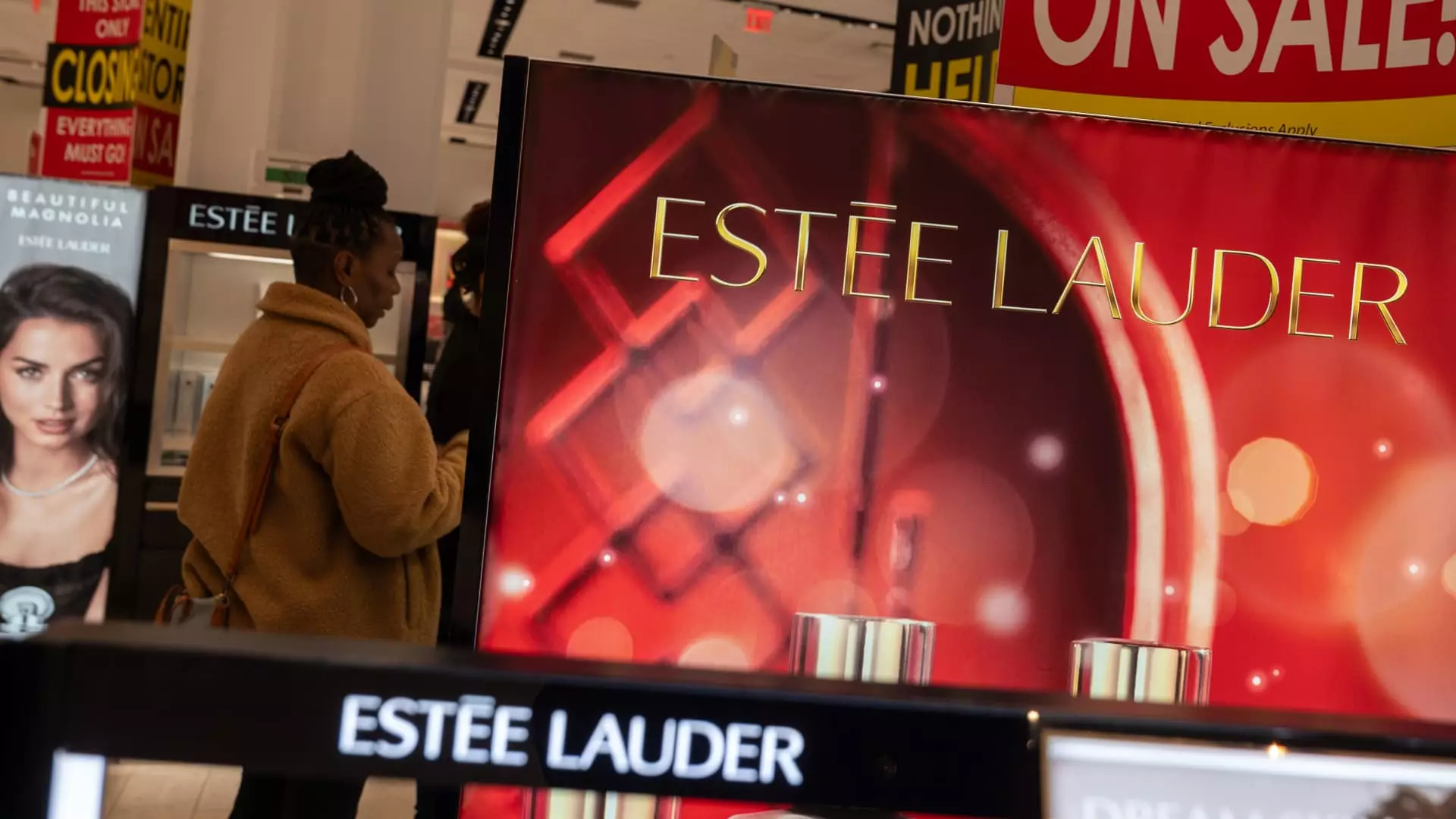The beauty sector has been experiencing a tumultuous week, with several key players like E.l.f. Beauty and Estee Lauder facing significant stock declines. A confluence of disappointing financial reports and altered forecasts has rattled investors, leading to a downturn in share prices that has left many questioning the industry’s stability. Highlighted by a striking 29% drop over the past week, E.l.f. Beauty marked its steepest decline since 2018, raising serious alarms about the financial health of beauty brands strategically vying for market dominance.
E.l.f. Beauty’s recent earnings reveal a company that, despite surpassing revenue expectations for its fiscal third quarter, faltered in adjusted earnings per share. The brand’s sharp adjustment of its full-year sales guidance—from an estimated $1.34 billion range down to between $1.3 billion and $1.31 billion—has caught analysts’ attention, leading to downgrades by prominent investment firms such as Morgan Stanley and UBS. CEO Tarang Amin hinted at broader concerns, noting a 5% decline in the cosmetics market as a hangover effect from holiday discounting and waning online interest in beauty products.
Estee Lauder, another giant in the industry, also felt the pressure as its stock fell 22%, a stark indication of investor unease. The announcement of significant job cuts—between 5,800 and 7,000 positions— signaled to investors that the company is grappling with serious challenges, especially in the Asian market’s travel retail sector. Although the company reported solid second-quarter revenue, the accompanying commentary from CEO Stéphane de La Faverie highlighted a loss of adaptability in a rapidly changing market, calling attention to unseized growth opportunities.
In a broader context, Ulta Beauty and Coty also reported declines of 9% and nearly 8%, respectively. These figures reflect a concerning trend across the beauty sector, indicating that these losses are not isolated incidents. Ulta, in particular, experienced its worst week since April, coinciding with observations from Amin about a decrease in sales at Ulta retail locations for E.l.f. Beauty products. This decline demonstrates the interconnectedness of market dynamics where weak performances by one company can ripple through the entire beauty ecosystem.
Further complicating matters for beauty stocks is the potential impact of tariffs, particularly as China responds to U.S. trade policies with new tariffs on select U.S. imports. With E.l.f. Beauty manufacturing a substantial 80% of its products in China, the implications of these tariffs are notable. Amin expressed relief that the imposed tariffs were substantially lower than initially proposed, but the pressure remains. The beauty industry, already grappling with shifting consumer interests and economic pressures, now faces additional external challenges from geopolitical relations.
The recent struggles of prominent beauty brands signal a concerning trend that could reshape consumer perceptions and investor confidence in this sector. This week’s developments serve as a stark reminder: even established names are not immune to market fluctuations or broader economic pressures. As the beauty industry navigates these uncertain waters, a renewed focus on adaptability and agility will be essential for long-term success in a competitive landscape.


Leave a Reply